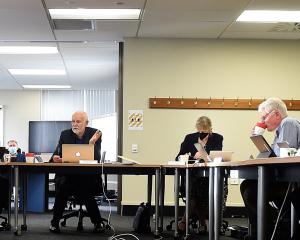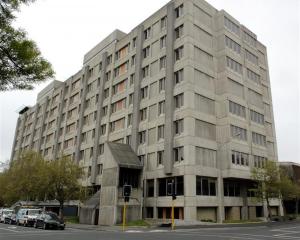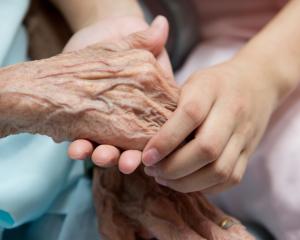Hillary Calvert calls for action over the future of neurological services in Dunedin.
We need to do something urgently to save neurological services in Dunedin.
We have heard a lot lately, mainly through the Otago Daily Times, concerning the provision of neurosurgery in Dunedin, and the possibility that we could lose our neurosurgical services.
It seems common ground that there should be six surgeons in the South Island, and that two of these can be in Dunedin.
Apparently there are neurosurgeons willing to come to Dunedin when/if a decision is made to keep the service here.
Clearly, the Otago and Southland District Health Boards, the Mayor of Dunedin, any local member of Parliament and, in fact, most likely everyone south of Timaru, all want the service to stay.
Apparently, there will now be a meeting in Dunedin to "provide some clarity around some of the issues, including the financial implications of the options".
Now is the time for action if we are serious about keeping this service.
We could do something in two ways.
Firstly, we could provide financial support for neurosurgery in Dunedin with a local fund.
Remember all those years ago when we raised money for a CT scan machine in Dunedin?We could do the same thing now.
We could find out how much extra it would cost to provide some services from Dunedin instead of all in Christchurch, and we could fund raise for the money in Otago and Southland.
And we could add a bit on so we could provide an incentive to neurosurgeons to come to Dunedin - cheap but fabulous housing, a corporate box at Forsyth Barr Stadium.
It would be important to find out what the extra costs of having two sites for neurosurgery actually are and make sure the costs included in the Christchurch-only option include the costs of transporting patients and their partners to Christchurch, the costs of some dying because they are too far away, etc.
Secondly, we could make sure that Dr Ian Brown, who is apparently writing an independent report on the matter, realises the cost to the rest of us, not just to the Government, which would come from a service provided only in Christchurch.
At the moment, if you need neurosurgical services, transport to and from the service is provided to patients and one support person, if the patient lives over a certain distance away from the service (this distance is just greater than the distance between Wellington and Napier).
If you are within the distance you are provided free transport only if you have a community services card.
The effect of this, for us, is that if you pay taxes, and earn more than the low community service limit you will pay your own way, while those who are already being supported by the taxpayer get it free.
Many Southland and Otago rural people, who provide some of the most productive wealth in New Zealand are, therefore, being offered the prospect of a reduced service because they are not poor enough.
The other part of neurological services from a distance is that it is not just your one next of kin who wants to be near when neurosurgery is performed.
A brain operation is very scary to all the family of the patient.
No-one from Dunedin south will be able to travel up to Christchurch to visit or stay close to a relative having neurosurgery without serious time commitments and without needing accommodation.
The cost to other relatives is therefore high, and at a time when everyone in the family is extremely stressed.
These "emotional costs" as well as the financial ones should be taken into account when such decisions are made.
So what can we do?
I am prepared to get out and help raise whatever money it takes to keep neurosurgical services in Dunedin.
If this service is run by Christchurch but provided in Dunedin, we have the best of all worlds.
We need them to tell us if the restraints are financial what the extra cost is expected to be.
We can pass on our views.
We can think laterally by looking at, for example, sponsoring a theatre in the hospital (which could then have some of its money recouped by being used after hours).
We can lobby members of Parliament and ask them what they are actually doing about this.
We can ask our mayor and others in Otago-Southland whether they are actually behind us and what they are prepared to do.
For Dunedin, the reality is that if we lose neurosurgery, we lose anaesthetics, we lose the Medical School.
We know what we were prepared to do for rugby.
What are we prepared to do for ourselves and the Medical School?
• Hilary Calvert is a Dunedin lawyer.












